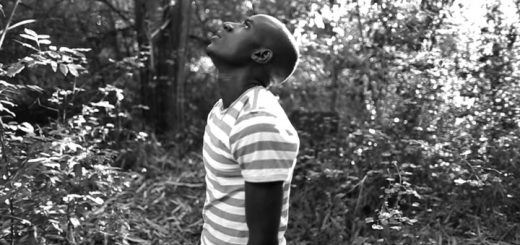Queer Narratives from Kenya: I am a male-to-female transgender
Testimony taken from the book “Stories of Our Lives: Queer Narratives from Kenya“, from an Archive of Stories Collected for the ‘Stories of Our Lives’ Research Project, NEST Arts Company Limited (Kenya), 2015
(…) That day I was certain that I wanted to disappear. The Nyiragongo Crater has a crater lake in the centre a two-kilometre radius of boiling, red lava. You can walk to the edge of the lake, and you can jump in if you like. People do that. I wanted to do that. I didn’t do it, though.
That night, I danced with my demons. I looked them in the eye, and told them, “Fuck you. I’m done running.” So I came back home.
I am a male-to-female transgender. I’ve always felt different since I was young. I never identified as male, ever. Growing up, I never knew my real parents. I’ve been in different foster homes – three of them so far. It’s been tough.
The first foster family thought I was a girl. When I was eight or ten, I started exhibiting feminine characteristics; growing breasts and hips. My foster parents were afraid. They said, “This is an omen. Hatumwezi.”
We can’t deal with her. When I was in the second foster family, I introduced myself as male, even though I didn’t look male at all. The mother of that family was OK with me, but the father wasn’t for the idea.
They took me to Nairobi Hospital, where I was given some injections, and I started to develop masculine features.
I broke my voice – I had such a soprano – and I used to have long hair. I had to shave it. I became very slim and I started doing heavy lifting work so that my muscles would develop.
After a while – as much as they wanted to change me into a man – I got tired of trying to be a man. I was still more drawn to being feminine. Finally they gave up and the father threw me out and I had to look for another family to live in. I couldn’t tell anyone the truth, so I lied about myself until another family took me in.
The mother of the third foster family was nice, she understood and supported me. But the husband was against it. He said I’d spoil his children, and he didn’t want me around. Mostly, it’s the men in the foster families who were against my being transgender.
The mothers don’t mind. They listen, maybe because they give birth to children themselves. You never know what kind of child you’ll get, so women are more understanding.
His wife continued to support me, she found me a sponsor who was willing to pay for my hormone therapy and counselling.
But after a while – I don’t know whether the father filled her with gossip – the sponsor told me, “You’re misbehaving, misbehaving, and you’re disrespecting your parents. You’re engaging in prostitution.” – which is something I’d never done in my life – “If you can’t listen to your own parents, who am I to intervene? I’m going to stop sponsoring you.” Which is what she did.
Back then, the community used to see that I looked male but I was dressing feminine. I’ve never been physically assaulted, just verbal. They used to insult me and threaten to lynch me.
I couldn’t leave the house during the day. I’d leave at night, and even then I’d cover myself. If I walked openly, people would recognize me and follow me.
After I started hormone therapy, I started presenting feminine characteristics and people were not able to identify my gender.
Now, the community treats me much better—except for those who knew me long ago. Those ones say, “Ah! Yule ni mwanaume, kwenda kudungwa sindano. Anafanya mambo ya Kichina…” Ah! That one is a man, he’s got injections of these Chinese products… Such gossip. It’s much less these days, but a while back, it was hard.
My community is very religious, it’s a very Muslim town. Yet they are the same ones – those sheikhs – at night, and in the dark, they call you and flirt with you. During the day, when you meet – he passes you like he doesn’t know you and – if he’s with his friends – he points you out and says, “Ile ni shoga, ishikeni.” That one is a fag, catch it. These sheikhs, these pastors.
All of them, these big people in Government. But they don’t want people to know. So they attack those of us who present openly.
At night, they’re gay – but I don’t know why they find the idea of accepting themselves so hard. (…)



